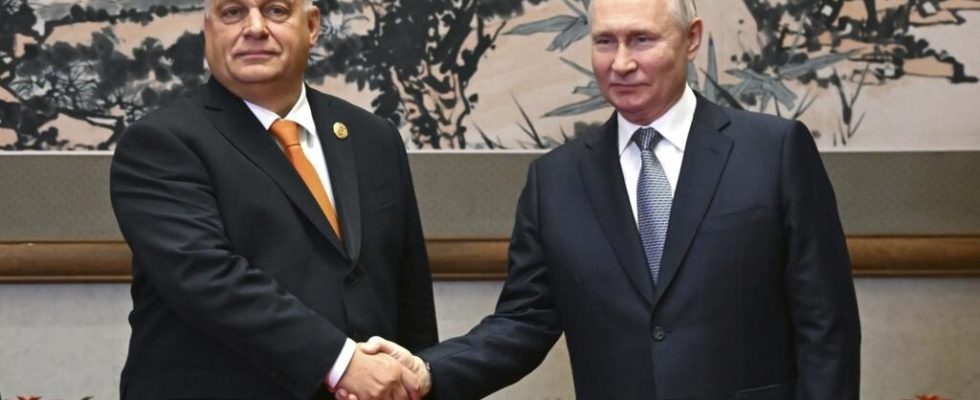While Vladimir Putin should be re-elected without hindrance at the end of the week as President of Russia, and for good reason, no opponent was allowed to present themselves. Russian propaganda is not limited to its simple borders. It has managed to infiltrate many European parties located at both ends of the spectrum, but also certain countries.
The regime of Hungarian Prime Minister Viktor Orban is one. And if polls are to be believed, the majority of Hungarians are behind him. Only 16% of them believe that Europe should support Ukraine and 64% think that we should instead push for the signing of a peace agreement. Figures which contrast with the rest of European public opinion. How to explain this difference? It’she report in Budapest by Florence Labruyère.
And in Slovakia, It is a populist Robert Fico who has taken over the reins of government, he should be reinforced in his positions during the next presidential election at the end of the month where one of his close friends is given as favorite. Bratislava, another pro-Russian stronghold in European territory. Explanations from our correspondent in Prague, Alexis Rosenszweig.
In Germany, it is the far-right party AFD, Alternative fur Deutschland, which clearly displays its pro-Putin positions.
When it was founded, in 2013, the party above all wanted to abandon the Euro. But since the annexation of Crimea in 2014 and the war in Ukraine, the leadership has changed, they come from eastern Germany, they are more radical leaders, and who clearly campaign for the end of sanctions against Moscow… We find Delphine Nerbollier in Berlin.
On the extreme left and the extreme right, powerful relays
Where can we find relays of Putin’s ideas in Western Europe? Not only in the former Soviet sphere from Hungary to Slovakia via the former GDR. This is the question I asked Tatiana Kastoueva Jean, researcher and director of the Russia/Eurasia Center at IFRI, the French Institute of International Relations, author of “ Putin’s Russia in 100 questions “, published by Tallandier.
Interference, Russian interference… the word is on everyone’s lips in Brussels, a few months before the European elections. Two years after Qatargate, where suspicions of corruption focused on Qatar and Morocco, several other scandals have shaken the chamber. This time, all suspicion is focused on Moscow.
Laure Broulard in Brussels
Note the measure recently adopted by the European Parliament which wants to ban all foreign political advertising, three months before the elections but entry into force is not planned before 2025.
